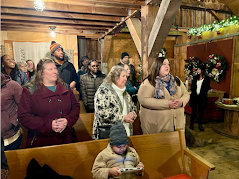Creekside Elementary School located in Sammamish, Washington has become a topic of debate recently. Two Creekside Elementary students by the names of L.A.W and J.W. wanted to start an interfaith prayer club. L.A.W. had a difficult experience as a religious student in fifth grade and therefore wanted to start the club so students like her would have a space after school where they were safe and welcomed. It must also be noted that this club was open to everyone no matter their faith background, and had allocated time for prayers and community service.
L.A.W and her mom met twice with the principal of creekside. She highlighted how the club was open to all grades and faiths with the main overacting goal to make students feel included and a good way to help the community. Also signifying that if a sponsor was needed she knew staff and adults who would be able to help. She was promptly told by the principal that funding for school clubs was allocated in October and she missed the deadline but one week earlier a Pride Club was formed in the school. The principal in a follow up meeting and said she could pay to use the school during after hours. Other students club did not have to pay, the principal said "I am sorry, I just can't tell you what you want to hear". She tried one last time later by emailing the principal and was never responded too.
L.A.W. claimed that denying the formation of a religious student group while allowing others violated the Constitution. This to her was religious discrimination on a eleven year old girl who simply wanted to pray, and feel support from other friends while also doing community service.
Creekside Elementary School has stepped over the line in my opinion. The elementary school in my opinion is violating their free exercise of religion and speech. The first amendment strictly protects prayer from censorship. Not allowing L.A.W. the ability to form a group that doesn't even have a set religion and is fully include is as censoring as it gets. Their is no favoring of one religion over another religion. Along with that point their is zero inclination of coercion as well. The club is open to anyone and all prayers and beliefs are allowed. Not only are all prayers accepted but they are also encouraged. There is absolute no harm or foul play whatsoever. I also have issues with the school as they also violate the establishment clause. Very interestingly only short drive away from Bremerton, Washington. This is where the case of Kennedy v. Bremerton School District (2022) occurred where a football coach was fired for kneeling in prayer at the 50 yard line aft
er high school football games. While a little different in nature it is still applicable in way to my case. The Supreme Court ended up ruling 6-3 that the first amendment protects the rights of students and employees to express their faith in public schools. They stated that the establishment clause does not allow the government body to take hostile views of religion.
Treating non-religious clubs differently that the prayer club shows favoritism. Fellowship of Christian Athletes v. San Jose Unified School district (2023) is another highlight. The government may not single out religious groups. Treating a secular activity different than a religious is a direct violation of the free exercise clause. There is also the argument that they are treating the prayer club with hostility and in a very negative way. By straight up ignoring their pleas. There is no policies that are burdening them but the burden the principal if inflicting that doesn't exist. This shows directly how the government is failing to act neutrally when it proceeds in a manner intolerant of religious beliefs or restricts practices because of their religious nature. The suppression and discrimination is intense in my opinion. Also must be noted that offering time outside of school by paying for the school space is unlawful. Religious clubs must be afforded the same rights and respect as any other club at the school.













